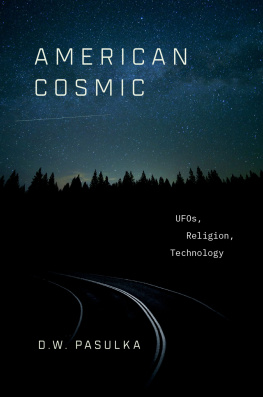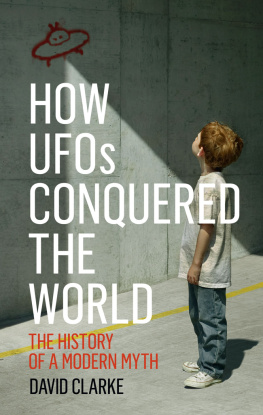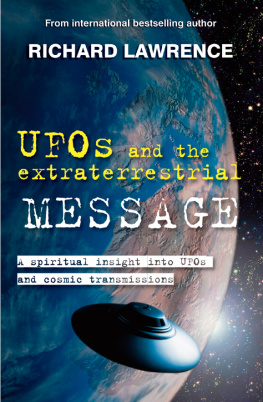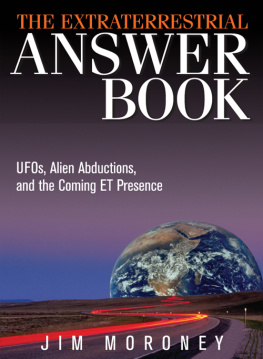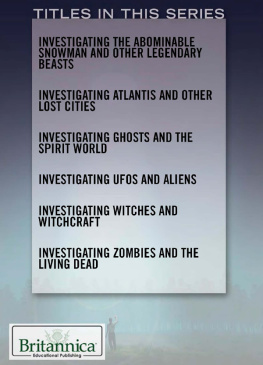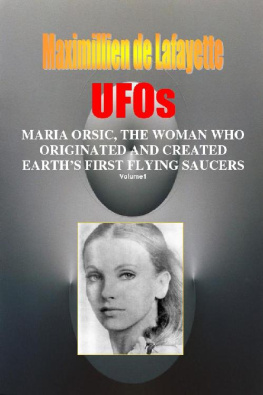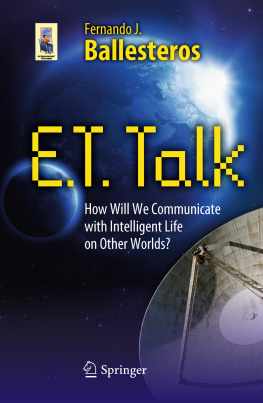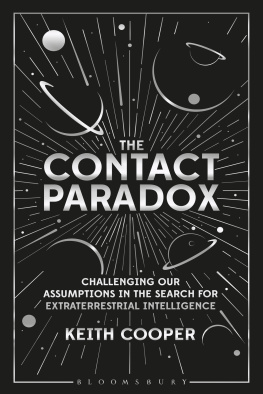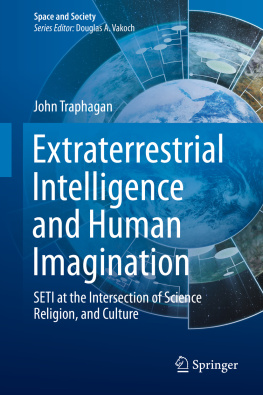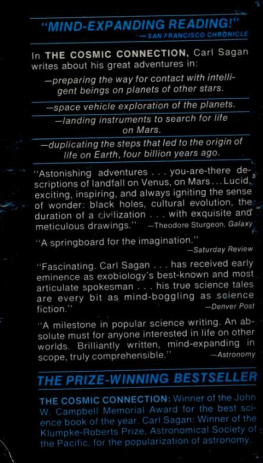AMERICAN COSMIC

Oxford University Press is a department of the University of Oxford. It furthers the Universitys objective of excellence in research, scholarship, and education by publishing worldwide. Oxford is a registered trade mark of Oxford University Press in the UK and certain other countries.
Published in the United States of America by Oxford University Press
198 Madison Avenue, New York, NY 10016, United States of America.
Oxford University Press 2019Parts of Chapter Four have been adapted from D. W. Pasulkas articleThe Fairy Tale is True: Social Technologies of the ReligiousSupernatural in Film and New Media in the Journal of the AmericanAcademy of Religion, Volume 84, Issue 2, 1 June 2016, Pages 530547.Used with Permission.
All rights reserved. No part of this publication may be reproduced, stored in a retrieval system, or transmitted, in any form or by any means, without the prior permission in writing of Oxford University Press, or as expressly permitted by law, by license, or under terms agreed with the appropriate reproduction rights organization. Inquiries concerning reproduction outside the scope of the above should be sent to the Rights Department, Oxford University Press, at the address above.
You must not circulate this work in any other form and you must impose this same condition on any acquirer.
Library of Congress Cataloging-in-Publication Data
Names: Pasulka, D. W., author.
Title: American cosmic : UFOs, religion, techonology.
Description: New York, NY : Oxford University Press, [2019] | Includes index.
Identifiers: LCCN 2018015547 (print) | LCCN 2018047070 (ebook) |
ISBN 9780190693497 (updf) | ISBN 9780190693503 (epub) |
ISBN 9780190692889 (hardcover)
Subjects: LCSH: Unidentified flying objectsReligious aspects. |
Unidentified flying objects in popular culture. | Life on other
planetsReligious aspects. | Extraterrestrial beings in popular culture.
Classification: LCC BL65.U54 (ebook) |
LCC BL65.U54 P37 2019 (print) | DDC 001.9420973dc23
LC record available at https://lccn.loc.gov/2018015547
American Cosmic is dedicated to Tyler.
Almost two thousand years, and no new god!
FRIEDRICH NIETZSCHE
The Internet is an alien life form.
DAVID BOWIE
Contents
These are the hills of Silicon Valley. There are many secrets in this valley.
Jacques Vallee maneuvers his car expertly through the daunting San Francisco Bay Area traffic, darting this way and that. Large trucks and small cars barrel toward us on the winding roads, and crashes are narrowly evaded. Every twenty minutes I lift my shoulders, which are stuck to the back of the car seat, and try to shake out the tension.
Jacques, father of the modern study of UFOs and an early visionary of the internet, is giving me and my colleague, Robbie Graham, a personal tour of his favorite geolocation, Silicon Valley. We drive by places that loom large in the history of the Valley. He recalls the early days of the technology revolution: They were on fire and purely democratic. Pure scientists, fueled by discovery. Jacquess credentials are intimidating. As an astronomer, he helped NASA create the first detailed map of Mars. As a computer scientist with a PhD from Northwestern University, he was one of the early engineers of ARPANET, the Advanced Research Projects Agency, a precursor of the internet. He is also a successful venture capitalist, funding startups of innovative technologies that have changed the daily lives of millions of people. He is a prolific author. He is probably most famous for being a consultant to Steven Spielberg on the movie Close Encounters of the Third Kind (1977). The scientist character in the movie, played by French actor Franois Truffaut, is based on Jacques. Jacques has perhaps done more for the field of ufology than anyone else in its short history, and yet he calls the study of UFOs his hobby.
This is the orthodox history of Jacquess life and work. His unorthodox history is equally interesting. He worked with scientists affiliated with the Stanford Research Institute, now SRI International, an independent, nonprofit research institute in Menlo Park. The groups activities are largely unknown to the public, but declassified documents from the 1970s and 1980s indicate that it was a research site for the extraordinary. Jacques did his early work on the internet under a program that, as Jeffrey Kripal writes, was probably called Augmentation of the Human Intellect.
This research was happening at the same time and in the same place as studies of remote viewing, precognition, and extrasensory perception. These esoteric skills were studied under a classified program called The Stargate Project, funded by the US military in partnership with the SRI. The hope was that the skills and talents of people who were naturally psychic could be developed and harnessed for the purposes of gathering intelligence. In the course of this research, the psychic viewers reportedly uncovered unintended and surprising targets, like UFOs. The participants in the program also reported that they could travel through space, to the moon, and to other planets, like Mars. In other words, the program allegedly developed, intentionally or not, psychic cosmonauts.
Perhaps unknown to Jacques and the researchers of the SRI, psychic travel had long been reported. Psychic cosmonauts like the eighteenth-century philosopher/theologian Emanuel Swedenborg crop up throughout the history of religions. Swedenborg claimed that, with the assistance of an angel, he had visited Mercury, Mars, Venus, and the moon. He claimed to have spoken to beings on those planets and he published his experiences in a book, Life on Other Planets (1758). The activities of the cosmonauts of the SRI may have resembled the interstellar adventures of Swedenborg, but their goals could not have been more different. They hoped to operationalize the knowledge they acquired about terrestrial targets; remote viewing was one of many methods of attempted data collection. These efforts to create human portals to other planets were taking place under the same auspices and at the same time as technologies of connectivity like the internet.
As we spun down the highway, I recognized the neighborhoods of my childhood, but I saw them now through Jacquess eyes. The streets, the smell of the eucalyptus trees, parks, schools, cafesall looked new to me, shining with the allure of mystery. As much as I wanted to, I never got up the nerve to ask Jacques exactly what he meant by the secrets of Silicon Valley. But on that drive I caught a glimpse into the exciting ideology and philosophy behind the revolutionits zeitgeist.
If Jacques were an essay, he would be The Question Concerning Technology by the philosopher Martin Heidegger. This essay, dubbed impenetrable by many readers, nevertheless offers several intriguing observations about the relationship between humans and technology. As Heidegger saw it, humans do not understand the essence of technology. Instead, they are blinded by it and view it simply as an instrument. The interpretation of technology as pure instrumentality was wrong, he said. The Greek temple, for the Greeks, housed the gods, and as such it was a sacred frame. Similarly, the medieval cathedral embodied and housed the presence of God for medieval Europeans. Heidegger suggested that the human relationship with technology is religiouslike, that it is possible for us to have a noninstrumental relationship with technology and engage fully with what it really is: a saving power. Jacques Vallee is fully aware of the revolution that is technology. Although he most likely never read Heideggers essay, Jacquess depiction of Silicon Valley as the home of the new resonates with Heideggers vision of technology as bringing to birth a new era of human experience, a new epoch.

